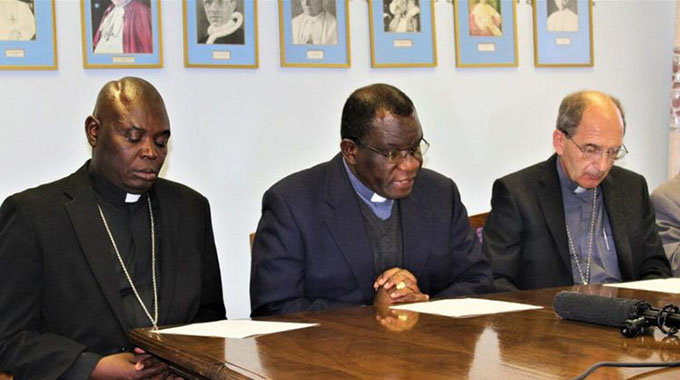Poet Gabriel relocates to push vision

Leroy Dzenga Arts Reporter
Linda Gabriel is a name whose footprints in Zimbabwean poetry circles is now indelible. Her contribution to the creative space is a story those who witnessed the glorious Book Café days can tell comfortably.
When she began getting passport stamps on the back of her talent, very few were surprised. The writer grew from a fierce rebel poet in her early days, to being a lucid voice on key issues.
Her rich catalogue carries a piece which stands as one of the best poems ever written for the stage in this country.
The poem, titled, “Sins of Our Mothers”, speaks on the sacrifices women who have had to raise families on their own face.
In one of the verses, Gabriel says;
“Sins of our mothers”
That are never told to us
But written in silence, on their hearts
Printed on their palms and repeated in their footsteps
That stretch from the As to Zs of this life.”
She tries to capture the depths of maternal love and how matriarchs can go to lengths to feed those who depend on them.
Gabriel decided to live the words she wrote. Instead of being the voice for women on the stage, she decided to walk the journey with them.
A bold decision followed, an ultra-urbane decided to escape the pulsating world of arts choosing to express herself in a different realm.
Relocating to “kumusha”, a traditional indigenous homestead in Zvimba, Mashonaland West, Gabriel was about to enter a phase of deprivation for a cause.
She left her other job where she used to help people with their wilting plants in her landscaping business and decided to retreat to a communal life 69km away from Harare Central business district and about 20km from Norton.
Having lived in Norton before her decision to relocate, so Zvimba was a natural choice for her.
“I got a piece of land through my foundation Bontle Bahao and immediately moved here. I did not wait for the place to be perfect.”
She had to make early friendships in the community for basics like water and food.
“I am here to work with women, so the idea was that I should get acquainted to the environment they live in,” she told The Herald Arts.
Her mission is to teach rural women of an agricultural approach known as permaculture.
Permaculture is the agricultural art of producing food in an ecologically friendly manner, creating an ecosystem where plants take care of each other and those who look over them.
By chance, Gabriel enrolled for a course in Mozambique where she obtained a certificate in the practice.
After a period of working with people in their private spaces, she decided to craft an idea with a widened scope.
Her localised version of the concept is called Mapfihwa, whose etymology can be traced to rural fire settings.
Mapfihwa are specially shaped rocks meant to support pots during cooking, and Gabriel says her idea will offer the same utility to communities she will engage.
“When I was working on my poetry, there was a time I felt verbalizing about the struggles of women is not enough.
Someone had to get on the ground and make objective efforts towards ensuring that we change the lives of those we represent in our poetry,” Gabriel said.
Her goal is to see women and families in rural areas leading a life of self-sustenance.
“My goal is to introduce women and men to an extent to new ways of farming and growing food. Our land can be utilised in diverse way, I want to introduce a lot of women to easy and affordable ways of growing food.”
Gabriel hopes those who learn from her will be able to extend the knowledge to their own networks. Currently, her homestead which doubles as an office is a modest house still to be properly finished.
Gabriel stays there full time with an intern and a collaborator.
Her family at first could not fathom how she was going to see her vision through but it is almost eight months and she is pushing. At the home, which also acts as a model permaculture centre everything they eat is grown on the land they have.
Gabriel becomes one of the latest creatives to retreat to their rural areas — though for a different reason — other personalities like Mike Zemura, Lazarus Boora, Mateo of the Pamuhacha fame and Roki have found comfort in rural areas close to Harare.
This allows them to remain in tune with events in the urban space without necessarily having to live there.
Some grow weary of the bright lights, others go there to recuperate, others due to financial decisions, Gabriel brings a new dimension to the rural relocation conversation.









Comments